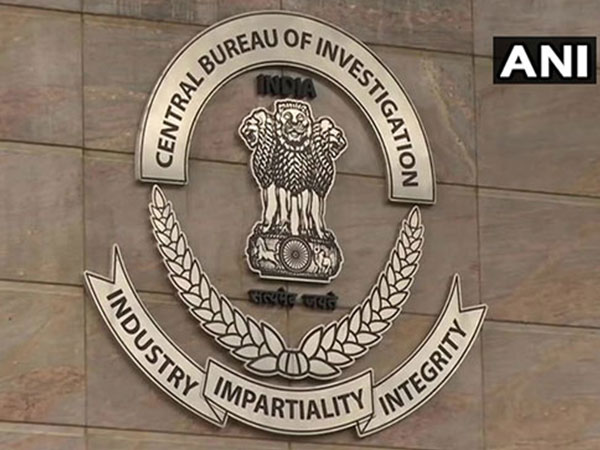
Our Constitution ceased to exist; our media was held hostage during emergency, recalls Vice President
Jun 20, 2025
New Delhi [India], June 20 : Vice-President Jagdeep Dhankhar on Friday reminded the gathering of a critical historical episode, namely the Emergency, saying, "Today I am reflecting on an incident, which comes as a sad anniversary within seven days."
"India was in the 18th year of its independence from the British colonial regime in 1975. It was June 25, 1975, at midnight. The President of India, then, Fakhruddin Ali Ahmed, signed, at the instance of the then Prime Minister Indira Gandhi -- a declaration of Emergency in the nation. It was for the first time," Vice-President said.
Interacting with participants of the 7th Batch of Rajya Sabha internship program (RSIP-7) at Vice-President Enclave, New Delhi, Dhankhar said, "Now you are discerning minds. A President cannot act on the advice of an individual, the Prime Minister. The Constitution is very categorical. There is a council of ministers headed by the Prime Minister to aid and advise the President. This was one violation, but what was the result? More than 100,000 citizens of this country were put behind bars in hours."
Reflecting on the collapse of democratic institutions, he said, "They were dragged out of their homes, put in jails all over the country. Our Constitution ceased to exist. Our media was held hostage. Some of the illustrious newspapers had blank editorials."
Sharing a chilling account of those arrested, he noted, "And you know, illustratively, who were these people who were suddenly put behind bars? Many of them became Prime Ministers of this country -- Atal Bihari Vajpayee, Morarji Desai, Chandra Shekhar Ji. Many of them became Chief Ministers, Governors, Scientists, and talented people. Many of them were your age."
Turning to the judiciary's role, the Vice-President highlighted, "That was a time when the fundamental essence of democracy capsized in times of distress. People look up to the Judiciary. Nine High Courts in the country have gloriously defined that, emergency or no emergency, people have fundamental rights, and there is access to the justice system.
Unfortunately, the Supreme Court overturned all nine High Courts and gave a judgment which will be the darkest in the history of any Judicial institution in the world that believes in the rule of law. The decision was that it is the will of the Executive to have Emergency for as much time as it thinks fit."
"And secondly, during an Emergency, there are no fundamental rights. So the judgment of the Supreme Court legitimised dictatorship, authoritarianism, and despotism in this land, Bharat, the oldest and now most vibrant democracy. You, therefore, have to remember it because you were not there. I was there."
Drawing attention to a significant development, he added, "And therefore, the present government thought very wisely, and a notification was issued on July 11, 2024. And that was for a valid reason -- we were having the 75th year of our Republic. We became independent in 1947. The 75th came earlier, but we became a Republic. So, we were starting that adoption of the Indian Constitution, the 75th year, and this day was declared officially by a gazette notification on July 11, 2024 -- that June 25th will be Samvidhaan Hatya Diwas."
He said with a call to duty, "And this is to make the event a sombre reminder -- that we have to be ourselves, Guardians and watchdogs of democratic values. So, I urge all of you to carefully analyze. Then you will come to know the price of democracy."
Emphasising another important aspect, Dhankhar said, "India is a country that believes in harmony, which means you practice a religion as per your volition, your option, your choice. You cannot be made to be attracted to a religion by sugar-coated promises, allurements. That is a step towards destroying a sense of Indian identity. Anyone has the right to choose a religion of his or her choice. But if there is allurement, temptation, something that comes with a string that is a challenge to our civilizational assets. Our foundations will shake, and I can assure you this change is taking place. Every individual has a right and a duty to attend to this."
Moreover, Jagdeep Dhankhar, reflected on the significance of International Yoga Day, saying, "Tomorrow is International Yoga Day. This emanates from our treasure. It has its origin in Bharat. It is deeply embedded in our scriptures, the essence of it. Our Atharvaveda is encyclopaedic about health, wellness, and how to take care of the body. So this idea occurred to Prime Minister Narendra Modi that we must share this good practice with the entire world, and we had a great achievement," he said.
He recalled, "In September 2014, when the Prime Minister began his first term, he made a clarion call at the United Nations while he was addressing the United Nations General Assembly. He said, and I quote, 'Yoga is an invaluable gift of India's ancient tradition'."
The Vice-President noted how the world embraced this vision. "The world picked it up in the shortest of time, within 75 days, with the largest number of countries, 177 nations, that converged into a resolution of the United Nations, namely Resolution 69/131 on December 11, 2014, declaring June 21 as International Yoga Day. Since then, it is celebrated all over the nation."
He shared his personal experience, saying, "I had the occasion to be at the main function in the Nation on 9th International Yoga Day at Jabalpur. And the Prime Minister of the country, of the largest, most vibrant, oldest democracy, had the occasion to participate in a similar program at United Nations Headquarters."
Addressing the young interns, the Vice-President emphasized, "Boys and girls, Yoga is not limited only to International Yoga Day celebrations on June 21. June 21 is a focal point for everyone to know about. It has to be part of your daily life. Start practicing it. You can do it in parts at any time of the day, also. It will give you relief, purify you from every sin, and take on occasional despondency out of you."






















